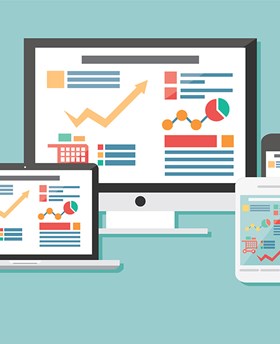Reporting Tools: Maximise Insights through Proper Usage
A reporting tool aggregates information and is most commonly used by experts who wish to provide information to stakeholders. The report is a means of making data accessible. While many tools may possess reporting functionalities, a reporting tool is dedicated to reporting and is either standalone or has been developed as an integrated part of a broader tool.

A reporting software is an essential tool that aids organisations in accumulating, analysing, and presenting data in a meaningful manner. A proficient software should not only facilitate the reporting process but also ensure that the right individual receives access to pertinent information, ideally in a timely manner, to make decisions based on the correct foundation.
Reporting is fundamentally a compilation of data displayed in a format that is easy to comprehend. Effective reporting tools will provide you with a chart, table, or some form of visual representation of information intended to aid in decision-making.
For less complicated data, reports constructed in Excel may suffice, but as complexity escalates, you need more.
Why Should One Have a Reporting System?
A reporting system is imperative to furnish a detailed overview of the organisation's finances, identify trends, and optimise aspects such as budget, KPIs, goal alignment, or Strategic Planning.
Whether you are operating in a BI tool, Project Management software, or a Performance Reporting tool, the tool should be tailored to your organisation and industry, be able to handle multiple data sources, and report what is vital to you.
Through customised reports, you can streamline processes, proactively identify issues, and share reports within the organisation. Additionally, human errors are reduced by eliminating the need for manual tasks such as copy-pasting data.
A significant part of efficiency is ensuring that the reporting is based on integrations with source data systems, is automated with predefined workflows, and is role-based. This considerably reduces manual work.
Integrating the reporting software with other systems can consequently alleviate the pressure on departments such as finance and controllers regarding time and accuracy in reporting.
How to Best Utilise Reporting Software?
Utilising a reporting software effectively depends on the purpose and type of the reporting software in question. Here are some general guidelines that may be helpful:
Be clear about what you aim to achieve or demonstrate with the system, such as monitoring performance or making decisions.
- Choose the best tool for your needs and the type of data you wish to report.
- Collect and organise relevant data from various sources like databases (e.g. data warehouses) and Excel sheets. Preferably work with integrations to optimise the process.
- Create clear and structured reports with charts, tables, and text to render the information easily understandable. Ideally, the tool should allow you to create templates that automatically fetch current data from source systems and notify relevant individuals to conduct analysis or assessment to be included in the report.
- Tailor the reports to the audience by considering their level of knowledge and needs. Also, ensure that all reports serve a purpose. Too often reports are produced but not utilised.
- Automate the reporting process as much as possible by scheduling data collection and report generation.
- Analyse results and draw meaningful conclusions by identifying trends or anomalies. If possible, it might also be worth integrating the reporting tool with various BI systems that can provide data as well as pre-made graphs that have already been produced.
- Regularly evaluate and improve reports by making adjustments to make them more efficient and useful.
Practical Benefits of a Reporting System
- Design future plans and become more competitive in the market.
- Share crucial information across all levels of the company.
- Generate reports with the data you want.
- Format reports in the way you want them to appear.
- Make sound decisions based on real-time information.
- Transform reports in real-time.
- Engage with the very latest information.
- Minimise performance bottlenecks.
- Construct “what if” scenarios.
- Build ad hoc reports.
Reporting tools empower you and others in your organisation to effortlessly interact with the data that is most significant to you and your business. This is particularly important in critical business decisions, enabling each department and the company as a whole to operate more efficiently.
What must one know to use a Reporting Tool effectively?
Understand your data: To use reporting software effectively, you need to have a basic understanding of the data you are working with. You should know where and how data is collected, and what type of data you are dealing with.
Ability to interpret reports: Reporting tools can generate a plethora of different reports. It is crucial that you are able to interpret these reports accurately, which means you need to understand statistics and data analysis.
Technical knowledge: You don't have to be an expert on the Tool, but you should have a basic understanding of how the software works and how you can use it to generate the reports you need, as well as customising these reports to suit your and others' needs.
Understanding of business processes: In order to use the software effectively, you should have a strong understanding of your business processes, your operations, and how data can be used to improve them. This is because the reporting software and its reports are often used as a basis for making business decisions.
Training and support: Many providers of reporting software offer training and support to help you use their products. Make the most of these resources to get the most out of the software.
Data protection and security: Ensure that the Software has adequate security features to protect your data, and that you understand these features and how to use them.
Integration capabilities: Many reporting tools can be integrated with other business systems (e.g., CRM, ERP, BI or Big Data systems). This can automate the data collection process and make the reporting process much more efficient.
10-minute video demo of Hypergenes solution:



